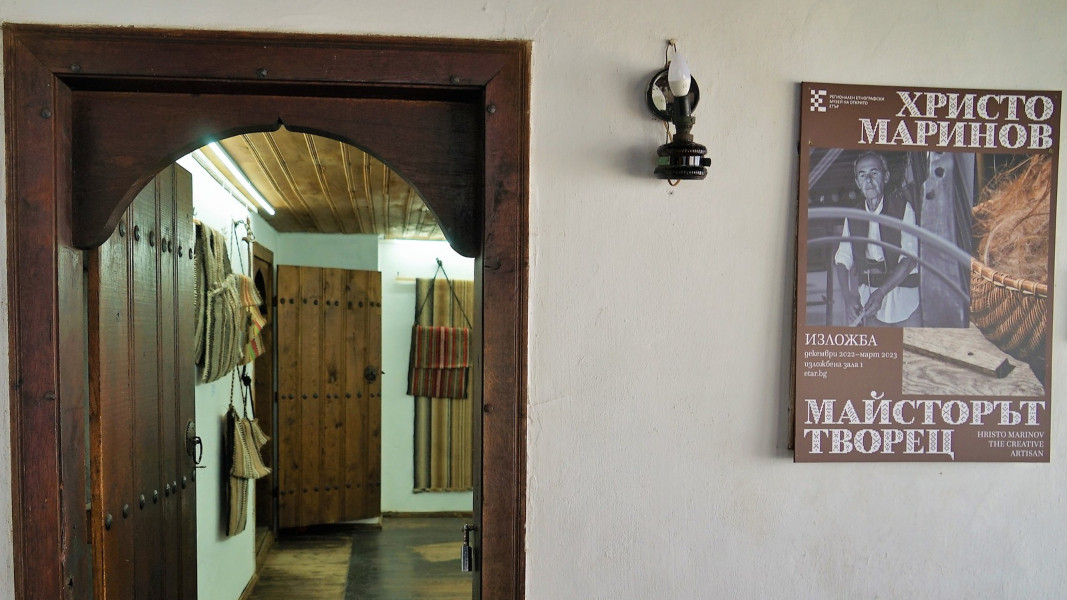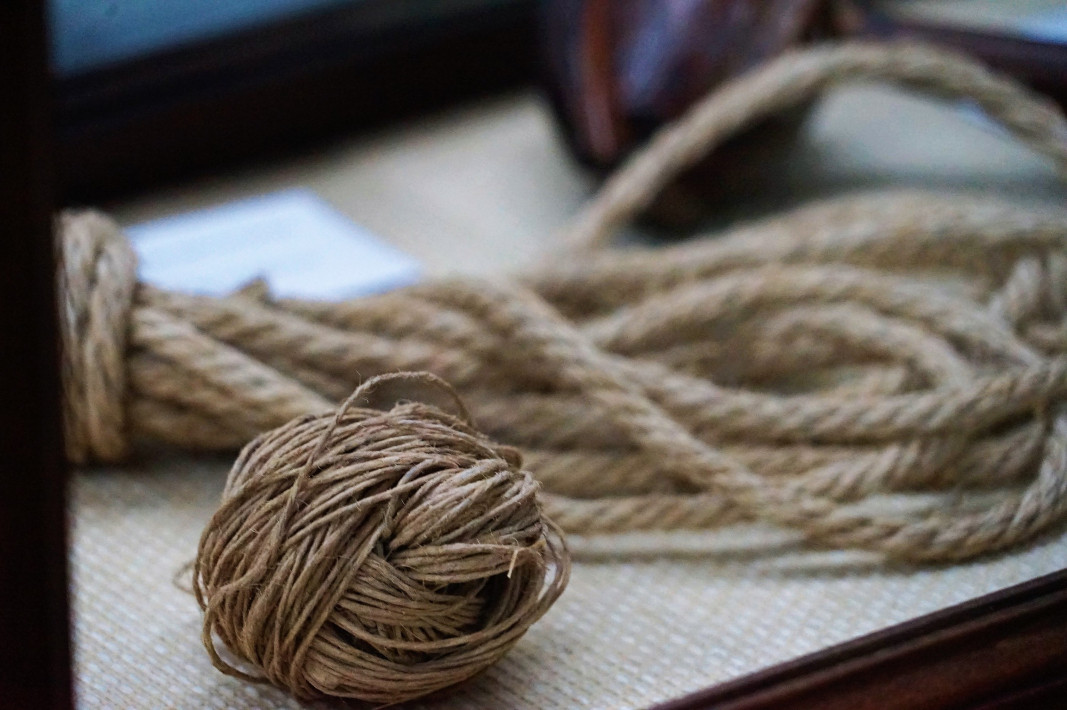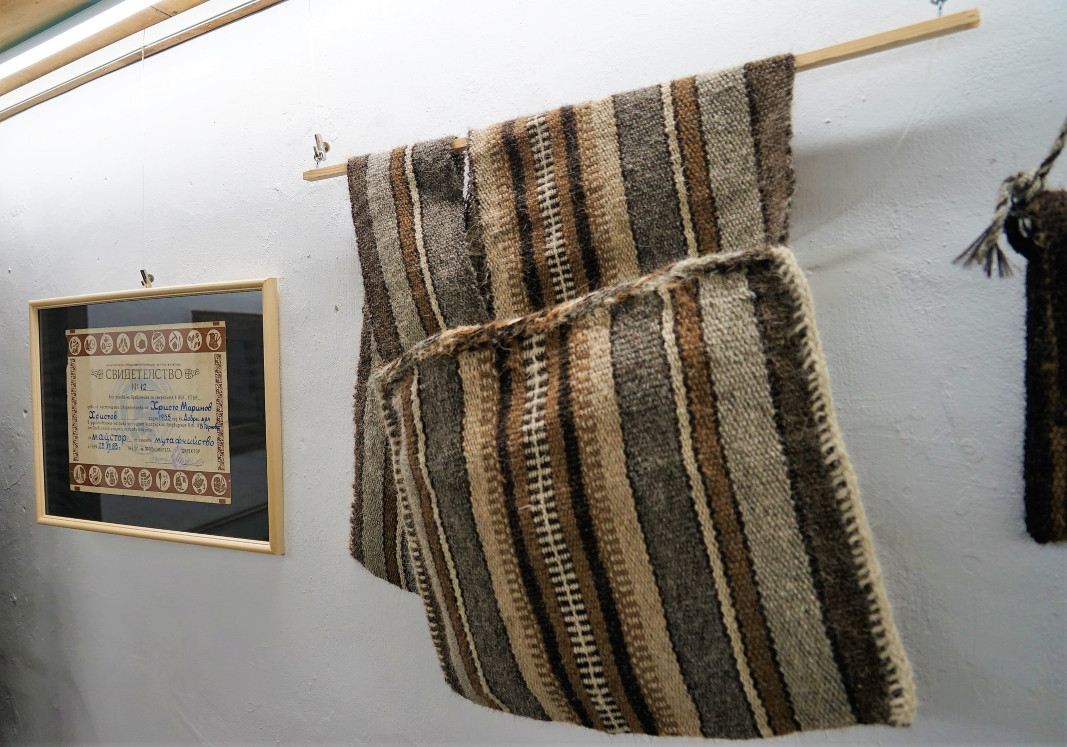To craft something with your own hands, to express yourself on canvass, in words, or in music may be a way to pass the intangible cultural heritage from generation to generation, so the people who do that are designated “living human treasures” and are registered in a national list.
Different kinds of people were designated living human treasures this year – people who make fishing nets, who make wine, people who play Kalofer bagpipes, dancers and singers.

One such person is Hristo Marinov, the only “mutafchiya” left in the Bulgarian lands. For 40 years he has been turning coarse goat’s hair into twisted yarn, and from the yarn he has been making rugs, saddlebags, horse blankets, grain sacks. He says he “stole” the trade from a master craftsman who made his wares in Etara, Gabrovo’s open-air ethnographic museum.

“People I haven’t seen for a long time have been calling me to congratulate me,” he says. “And they call me “treasure”, not by my name. It feels strange but it’s nice. It’s an acknowledgement of the fact I have kept this handicraft alive so that more people can see it over time.”

The craft of “mutafchiystvo” was considered to be a man’s job because it was hard work and went through multiple stages.
“To get from the sheared goat’s hair to the finished article you have to go through an endless number of operations,” the master craftsman explains. “There’s choosing the colour, carding by colour, rope thrashing, winding the goat’s hair onto a distaff, spinning it, rolling it into balls, shuttling, making the harness, then making the weaving loom for each piece of fabric. There are as many operations maybe as the number of years I have been in this trade. During the National Revival (19th century) and later – up until the 1950s and 1960s there were 3-4 people working at a workshop.”

The trade was brought to this country from Persia at the beginning of the 18th century, and by the time of the country’s liberation in 1878 it had spread to the major towns of Bulgaria. In Panagyurishte it was well advanced – with thousands of mutafchiyas- master craftsmen, journeymen and apprentices working at 200 workshops.
“They say the Crimean War was the beginning of the end of this trade,” Hristo Marinov goes on to say. “At the time sacks were made for the troops to carry their gunpowder in – the coarse hair keeps out the damp.”

In our day mutafchiyas weave carpets and make shoulder bags. The technology has not changed, that is why at his orkshop in Etara open-air museum, Hristo Marinov uses a vertical loom that is 120 years old and tools, some of which date back to the time of the National Revival. Items that are the fruit of his loom have been bought by people from all corners of Bulgaria, but also from different countries of Europe, from Japan, Australia.

Hristo Marinov says the kind of customers he likes best are the ones that know what they want. And there are some who have some odd requests.
“There was a man traveling to Shipka with a group of tourists, and he came to Etara with them to buy saddlebags,” Hristo Marinov remembers. “I had some old-time original saddlebags at home and I gave them to him. I asked him what he wanted them for and he said: My neighbour had nailed some saddlebags over the door and he won the lottery. So, I want some too, to hang over my door.”
The master craftsman, whose who crafts his wares to an “audience” of onlookers, is currently displaying them at the Regional Ethnographic Museum Etara. “It’s almost like theatre” says Hristo Marinov, who actually performs on a different stage – he is an actor in Gabrovo’s Mime Theatre.

Reporting by Velina Mahlebashieva, BNR’s correspondent in Gabrovo
Compiled and edited by Diana Tsankova
Photos: Facebook/Gabrovo municipality
"My name is Andromahi Bardi (Andromaxh Mpardh). I am 22 years old, a former student of the Bulgarian Sunday School "Sts. Cyril and Methodius" in Athens and now also a teacher there. I live in Athens, I was born here, but my mother is from Bulgaria and it..
He breathes life into puppets made of wood, yet, just like in real puppet theatre, they seem to guide his own destiny. And together, they create a magical atmosphere in which out of poetry, philosophy and matter a new and better world emerges...
Professor Vladimir Kefalov is among the scientists who have been awarded the prestigious Bresler Prize in Vision Science. Professor Kefalov earned the award in 2019 for his groundbreaking work on photoreceptor cells in the retina . His research is a..
In 1920, a young woman with a nine-month-old baby faced a difficult life choice – to stay in Sofia with her husband, to go to her..

+359 2 9336 661
